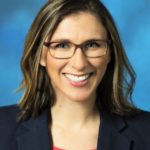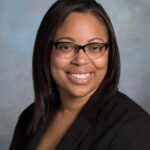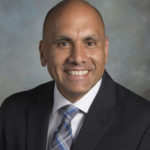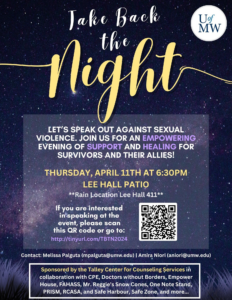 Take Back the Night will take place Thursday, April 11, at 6:30 p.m. on the Lee Hall Patio (Rain location: Lee Hall 411)
Take Back the Night will take place Thursday, April 11, at 6:30 p.m. on the Lee Hall Patio (Rain location: Lee Hall 411)
Let’s speak out against sexual violence. Join us for an empowering evening of support and healing for survivors and their allies!
If you are interested in speaking at the event, scan the QR code on the poster to the right or sign up online.
Contact Melissa Palguta or Amiria Niori with questions.
This event is sponsored by the Talley Center for Counseling Services in collaboration with CPE, Doctors without Borders, Empower House, FAHASS, Mr. Reggie’s Snow Cones, One Note Stand, PRISM, RCASA, Safe Harbour, Safe Zone and more.
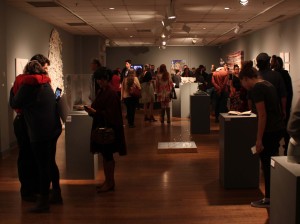
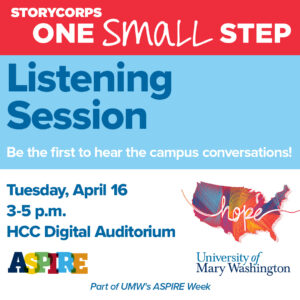 Created by StoryCorps, ‘One Small Step’ is an effort to remind the country of the humanity in all of us, even those with whom we disagree. The initiative brings strangers with different political views together to record a 50-minute conversation—not to debate politics, but to learn who we are as people.
Created by StoryCorps, ‘One Small Step’ is an effort to remind the country of the humanity in all of us, even those with whom we disagree. The initiative brings strangers with different political views together to record a 50-minute conversation—not to debate politics, but to learn who we are as people.

